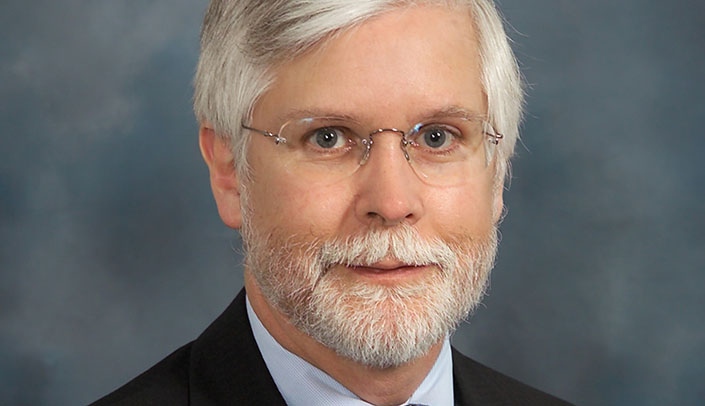One of the key items approved by the University of Nebraska Board of Regents at its meeting this month was to establish a Department of Neurosurgery in the UNMC College of Medicine.
In making neurosurgery a department, UNMC will be joining the majority of other academic medical centers in the country in which 98 of 110 (89 percent) neurosurgery programs are departments. Seven of the eight neurosurgery programs in the Midwest region with established residency programs are departments.
The time is right. Over the past decade, faculty clinical activity in neurosurgery has increased approximately 60 percent and UNMC/Nebraska Medicine has become a regional destination center for neurological care. Growth of the program has been driven in large part by the development of subspecialty services not offered by other neurosurgical providers or institutions in the region.
Neurosurgical services at UNMC and the training of a new generation of neurosurgeons is absolutely critical to our state.
The population of Nebraskans aged 65 and over is projected to grow by 75 percent from 2010 -2030. This aging population means more people will be at a higher risk for neurological problems such as stroke, degenerative spine disease, tumors, and neurodegenerative disorders such as Parkinson’s disease whose optimal treatment requires the availability of well-trained neurosurgeons.
What’s more, the availability of neurosurgeons is decreasing due to retirements. Thus, a strong and vibrant neurosurgery program is needed to meet the greater need for neurosurgical services.
The creation of the department is occurring coincident to a change in neurosurgical leadership on campus. After many years, Ken Follett, M.D., Ph.D., UNMC’s current division chief of neurosurgery, is planning to step down in 2018 and return to being a full-time neurosurgery faculty member.
Dr. Follett’s leadership has been absolutely critical to the success of the division of neurosurgery. He helped lay the groundwork that allowed neurosurgery to become a department.
Ken holds the prestigious Nancy A. Keegan and Donald R. Voelte, Jr. Chair in Neurosurgery. He was one of the first surgeons in the Midwest to use deep brain stimulation to treat Parkinson’s disease, and he has embodied excellence in his research, teaching and service. I can’t thank him enough for what he has done for our medical center.
Now, we must recruit a department chair who can continue the growth and evolution of the department. Nebraska Medicine is developing plans for an even more comprehensive neurosciences program. This should bring exceptional growth opportunities while increasing the stature of UNMC neurosurgery. Thus, the chair will have to be a visionary, energetic, dynamic leader. The fact that neurosurgery will now be a UNMC department should greatly enhance the attractiveness of this important leadership position to potential candidates as we begin a national search for the position within the next month.
I also want to acknowledge Dr. David W. Mercer, chair of the department of surgery, for his tremendous support in making this transition of neurosurgery from a division within the department of surgery to an independent department. He was a driving force in supporting the proposal and making it happen. We are so fortunate to have a leader like Dr. Mercer who recognizes the importance of institutional view in his role as a departmental leader in the college.
On a different note, I want to extend my gratitude to all those College of Medicine alumni who came back to Omaha for our Reunion Weekend on Oct. 20-21. It was great getting to meet you and to feel your excitement in seeing how the campus has changed over the years. Also, congratulations to Drs. Margaret Tempero, Audrey Paulman, Paul Paulman, and Jill Poole for being recognized for their outstanding career accomplishments by the College of Medicine Alumni Council.
The value of alumni can never be underestimated. They are truly the best ambassadors as to the quality of education that is part of a medical degree from UNMC. It is always great to have them back on campus.
